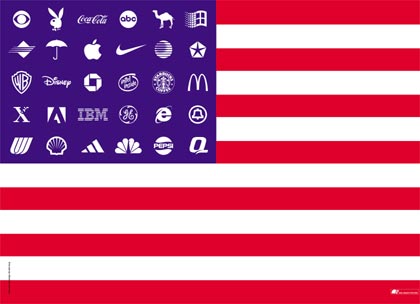Commercialism

Why do broadcasters continue to offer alcohol-related, sexual, and violent programming, given the overwhelming data testifying to the damage done by such fare? Our question stems from a fundamental misunderstanding of television’s clientele. As a writer for the Journal of the American Medical Association observed:
Cable aside, the television industry is not in the business of selling programs to audiences. It is in the business of selling audiences to advertisers. Issues of “quality” and “social responsibility” are entirely peripheral to the issue of maximizing audience size within a competitive market.
Television does not exist to entertain us; it exists to sell to us. Colman McCarthy, professor at Georgetown University and the University of Maryland, explains, “It is a commercial arrangement, with the TV set a salesman permanently assigned to one house, and often two or three salesmen working different rooms.” Dr. John Condry, professor of human development and family studies at Cornell University, writes, “The task of those who program television is to capture the public’s attention and to hold it long enough to advertise a product.”
While this amazes some parents, it is reality that everyone in the television industry thoroughly understands. Doug Herzog, while serving as president of Fox Entertainment, thus justified the level of alcohol, sex, and violence on his network, saying, “This is all happening because society is evolving and changing, but the bottom line is people seem to be buying it.” Gene DeWitt, chairman of one of the leading firms selling television advertising time, similarly admitted, “There’s no point in moralizing whether this is a good or bad thing. Television is a business whose purpose is gathering audience.”
Indeed, children see one hour of commercials for every five hours of programs they watch on commercial television. This means that during calendar year 1997, when the average U.S. child watched television 25 hours a week, he spend 260 full hours (or the equivalent of 6.5 weeks of forty-hour-per-week shifts) just watching commercials.
This is significant when we consider that the most essential product of the advertising industry is hunger. That is, commercials are intended to create a feeling of lack in the viewer, a deep ache that can only be assuaged by purchasing the product. As Dr. Neil Postman, chairman of the Department of Communications Arts at New York University, points out, “What the advertiser needs to know is not what is right about the product but what is wrong about the buyer.” So we hand our children over to Madison Avenue to be told, hundreds of hours a year, how hungry, bored, ugly, and unpopular they are and will continue to be until they spend (or persuade their parents to spend) a few more dollars. And then we wonder why our children feel so hungry, bored, ugly, and unpopular, and why they are so needy.
_____________________________________
By: Lawrence Kelemen - To Kindle a Soul Page 169-70
“There’s no point in moralizing whether this is a good or a bad thing. Television is a business whose purpose is gathering audience.”
- Gene DeWitt
(Chairman of one of the leading firms selling television advertising time)
“The most important assets are brands.
Buildings age and become dilapidated.
Machines wear out.
Cars rust.
People die.
But what lives on are the brands.”
Hector Liang
Chairman, United Biscuits
origin: How consumerism affects society, the economy and the Environment
“We worry about so many dangers to our children—drugs, perverts, bullies—but seldom notice the biggest menace of all: the multibillion-dollar marketing effort aimed at turning the kids into oversexed, status-obsessed, attention-deficient little consumers.”
Barbara Ehrenreich, author of Nickel and Dimed
The typical American child now spends about twenty-one hours a week watching television - roughly one and a half months of TV every year. That does not include the time children spend in front of a screen watching videos, playing video games, or using the computer. Outside of school, the typical American child spends more time watching television than doing any other activity except sleeping. During the course of a year, he or she watches more than thirty thousand TV commercials. Even the nation’s youngest children are watching a great deal of television. About one-quarter of American children between the ages of two and five have a TV in their room.
Fast Food Nation pg. 46 (Eric Schlosser)
According to consumerism and economics expert Juliet B. Schor (Born to Buy), the average 10-year-old has memorized about 400 brands, the average kindergartner can identify some 300 logos and from as early as age two kids are “bonded to brands.”
Most people are servants of their passions, but the truly free person is the one who can control his desires. When the sages taught “Only one involved in Torah is truly free” (Pirkei Avos 6:2), they meant to say that only Torah allows one to free himself from the shackles of desire and to truly exercise free choice. Without Torah, one is not free at all, he is a slave, controlled by a master foreign to his better instincts. While intellectually he might have correct ideas of how to live, ultimately his master - his passion - will force him to act otherwise.
Excerpt from: The Torah Treasury pg. 146 (more quotes - click here)
“If we understand the mechanism and motives of the group mind, it is now possible to control and regiment the masses according to our will without their knowing it.”
“The conscious and intelligent manipulation of the organized habits and opinions of the masses is an important element in democratic society. Those who manipulate this unseen mechanism of society constitute an invisible government which is the true ruling power of our country. ... We are governed, our minds are molded, our tastes formed, our ideas suggested, largely by men we have never heard of. This is a logical result of the way in which our democratic society is organized. Vast numbers of human beings must cooperate in this manner if they are to live together as a smoothly functioning society. ... In almost every act of our daily lives, whether in the sphere of politics or business, in our social conduct or our ethical thinking, we are dominated by the relatively small number of persons ... who understand the mental processes and social patterns of the masses. It is they who pull the wires which control the public mind.”
Edward Bernays (considered the father of public relations and named one of the 1000 most influential people of all time.)
In 1928 President Hoover told a group of advertisers and public relations men “you have taken over the job of creating desire and have transformed people into constantly moving happiness machines, machines which have become the key to economic progress.”
“The average person in the US watches about four hours of television each day. Over the course of a year, we see roughly twenty five thousand commercials, many of them produced by the world’s highest-paid cognitive psychologists. And these heavily produced advertisements are not merely for products, but for a lifestyle based on a consumer mind-set. What they’re doing, day in and day out, thirty thousand times a year, is hypnotizing us into seeing ourselves as consumers who want to be entertained rather than as citizens who want to be informed and engaged…”
Duane Elgin on Simplicity and Humanity’s Future
“The mass of men lead lives of quiet desperation.” - Henry David Thoreau






by Member of the Tribe
Posted in: Hot Topics
RELATED ARTICLES
![]()




